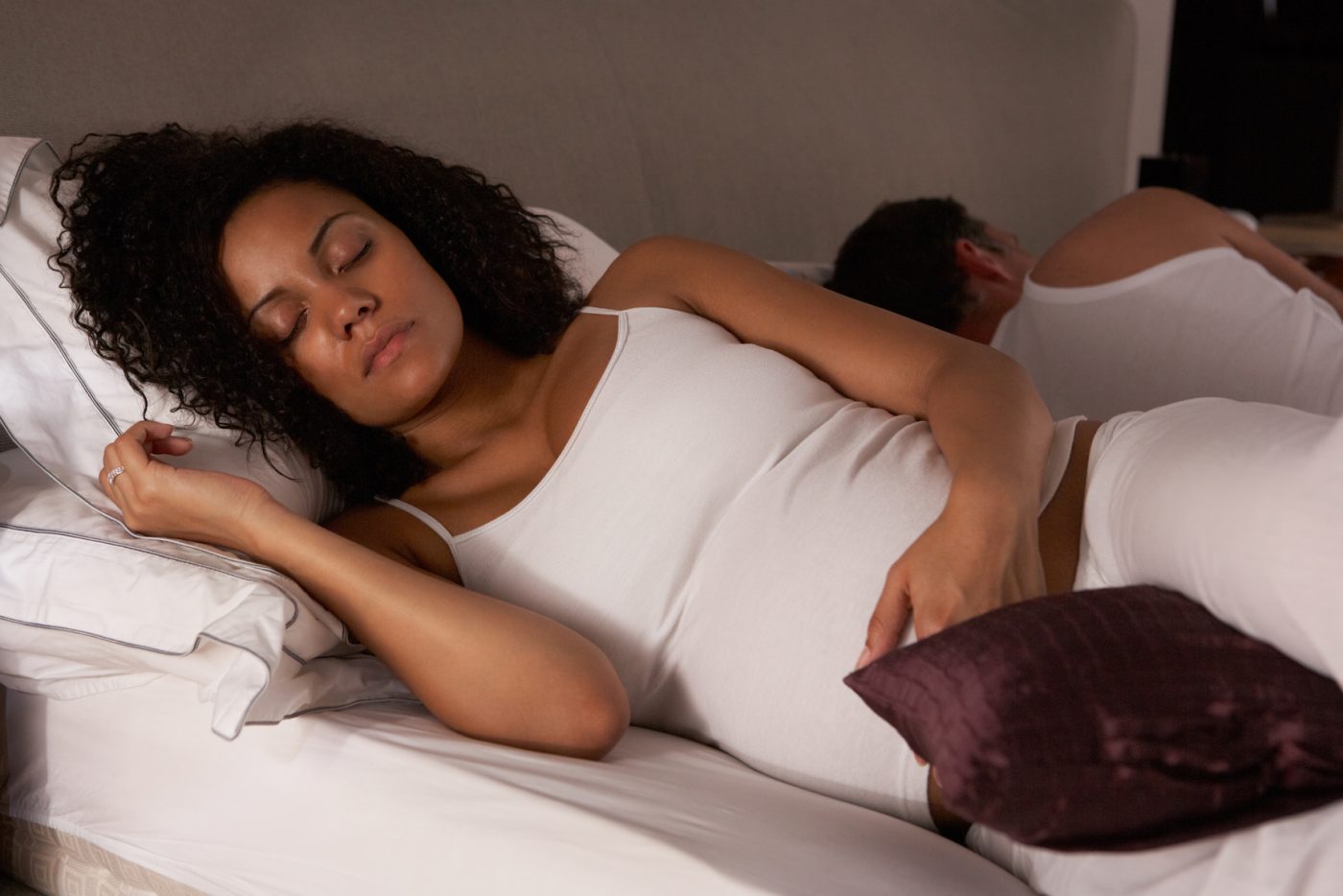
There are all sorts of things you can do to help alleviate the common pregnancy sleeping problems, which include:
Nausea.First, try not to let it bother you if you can’t sleep, and don’t worry that it will harm your baby – it won’t. If you can, nap during the day, and get some early nights during the week.
Avoid drinking tea (even green tea), coffee or cola drinks in the evening as the caffeine can make it harder to go to sleep, whereas some foods can help sleep. Bananas and porridge, for example, contain tryptophan, the amino acid needed by the body to produce serotonin. Serotonin is used to make the sleep hormone melatonin.
Indigestion generally gets worse during pregnancy, so avoid anything that has a tendency to set it off. Spicy or heavy foods for example.
Try to get most of your water through the day and avoid it during the evening. This may save you a few trips to the bathroom through the night.
You can reduce nausea by nibbling on bland foods, like plain crackers, during the day and even just before bedtime.
Try to relax before bedtime so that you’re not too wide awake. Avoid looking at tablets, smartphones, and the television an hour before bedtime as the light stimulates the production of the stress hormone cortisol, which can stop you sleeping (see more on hormones below). Relaxation techniques may also help. Your antenatal classes may teach relaxation techniques, or you could borrow a relaxation tape, CD or DVD from your library. Even if you’re feeling tired during the day, try to get some activity, such as a walk at lunchtime or going swimming. Try joining an antenatal yoga class or pilates class as exercise can help you to feel less tired and conversely help you to sleep. If the lack of sleep is bothering you, talk to your partner, a friend, doctor or midwife.
If you’re like many people, and you go to bed and start worrying about things – try writing a list before you go to bed of everything you need to do the next day. Then it’s sorted and might help when you can go to bed and try to sleep.
Occasionally, sleeplessness – when accompanied by other symptoms – can be a sign of depression. If you have any of the other symptoms of depression, such as feeling hopeless and losing interest in the things you used to enjoy, speak to your doctor or midwife. There are treatments that can help.
There are two key hormones involved in sleep. Cortisol, the stress-response hormone, needs to be reduced to aid sleep, whereas production of melatonin, the sleep hormone needs to be increased. Cortisol release is triggered by daylight and is at its peak in the morning and should be reduced before bedtime to aid sleep, whereas melatonin is triggered by darkness and cooler temperatures at the end of the day.
See our article on Sleep deprivation for tips on regulating these important hormones.
If your legs jump or twitch through the night and wake you, you might have restless leg syndrome or RLS. Talk to your doctor about whether you are getting enough magnesium. Usually, you can get enough through diet – things like beans, seeds, whole grains, some fish like mackerel, and leafy green vegetables. If you have magnesium deficiency symptoms, such as RLS, poor memory or irregular heartbeat, chat with your doctor about a pregnancy-appropriate magnesium supplement.
Sleeping on one side with your knees bent is likely to be the most comfortable position. Pillows under your tummy, between your knees and behind your back can really help too.
Lying on your back, half propped up with lots of pillows can help if you have heartburn. Lying flat on your back isn’t a good idea later in pregnancy since the weight of your uterus presses on your spine, back muscles and major blood vessels, which can decrease blood flow around your body and to your baby.
Don’t lie on your tummy. As your baby becomes bigger, then the position becomes quite uncomfortable and you will find yourself automatically re-adjusting, sometimes whilst asleep.
Nap if you feel like it for an hour through the day. It helps relax you and reduce your cortisol levels, which will mean you’ll have more quality sleep at night.
Exercise is great for reducing stress, but don’t work out in the evening as it will wake you up, and might prevent you falling asleep easily.